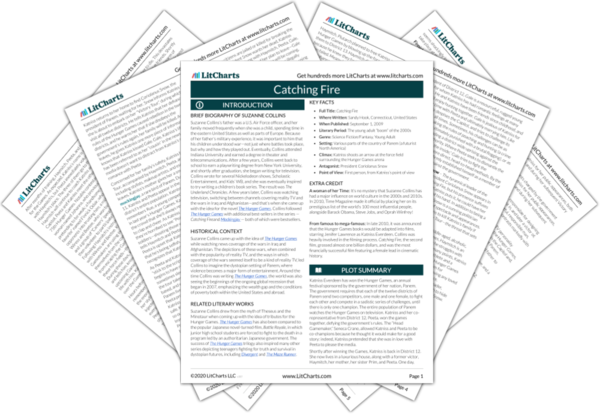LitCharts assigns a color and icon to each theme in Catching Fire, which you can use to track the themes throughout the work.
Symbols and Interpretations
Hidden Resistance vs. Direct Rebellion
Surveillance and Manipulation
Pain, Pleasure, and Self-Control
Women, Femininity, and Sexism
